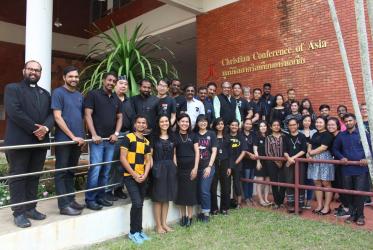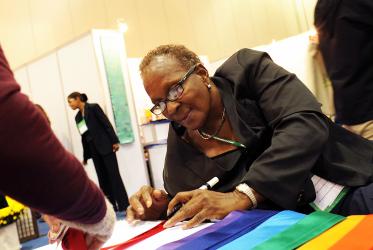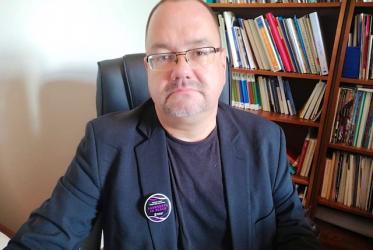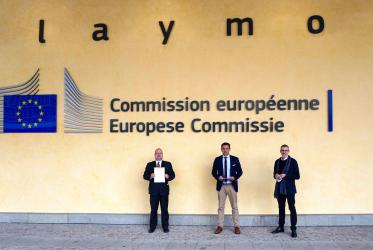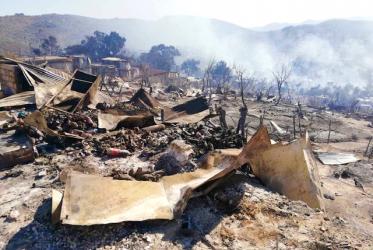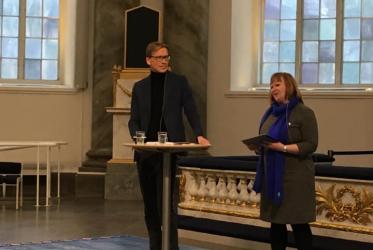Displaying 1 - 20 of 54
11 - 18 November 2023
Orthodox Academy of Crete, Greece
WCC Eco-School 2021 for Pacific region on Water, Food and Climate Justice
22 - 28 February 2021
Ecumenical statement on migration received by European Commission
25 September 2020
On the journey to HIV – bridging gaps, debunking myths
21 February 2019
Ecumenism is a sense of belonging
08 February 2019
WCC Executive Committee envisions future for one ecumenical movement
08 November 2018
WCC greets new leadership of ACT Alliance
31 October 2018
Not just numbers, displaced people need to share their stories
01 February 2018
Forum strengthens ecumenical commitment to diakonia
12 October 2017
Seminar explores how populist rhetoric leads to racism
07 September 2017
G20 summit: call to pray for peace in Hamburg
07 July 2017

